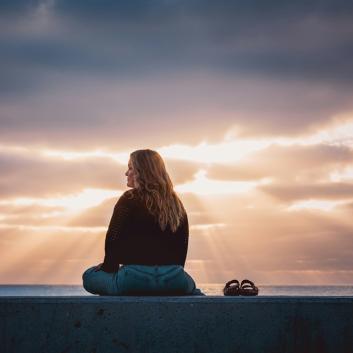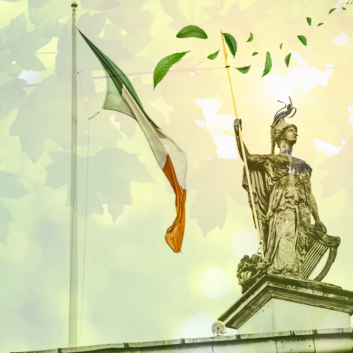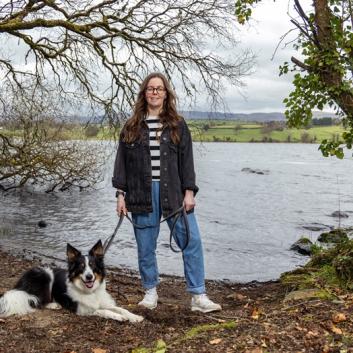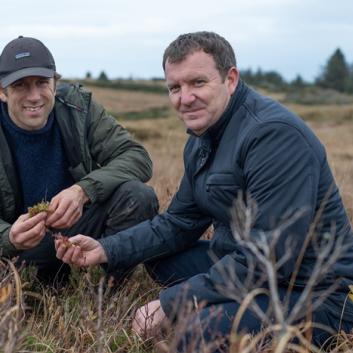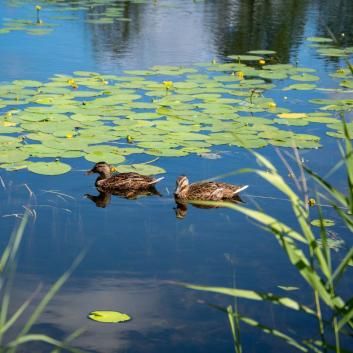Making a world without plastic pollution a reality
Whether we consider biodiversity loss, polluting fossil fuels, or climate disasters, the picture is clear: we must change systems at scale.
Although change doesn`t happen overnight, and if you recall any recent personal endeavours to change something in your life, from shifting to a healthier diet to squeezing in more exercise, you will agree that change is difficult.
One of the most pressing global challenges we face is plastic pollution, given that every year a staggering 19-23 million tonnes of plastic waste leaks into aquatic ecosystems, polluting lakes, rivers and seas, according to the UN Environment Programme (UNEP).
As Vice President and Head of Plastic Waste and Business at the World Wildlife Fund (WWF), Erin Simon drives positive change across industries in packaging and material sustainability while leading one of WWF`s flagship campaigns, “No Plastic in Nature”.
“Mount Everest. The streets in your neighbourhood. Tropical beaches on remote islands. Your local park. The Mariana Trench. What do all of these places have in common? You can almost guarantee that you will find plastic waste in every one of them”, says Erin about the scale of the plastic challenge.
For a global issue like plastic pollution, Erin stresses the importance of collective action.
She believes that to combat this crisis, we need as many people as possible to support and contribute to the solution, but for that to happen, we need to overcome our differences.

“Divisiveness continues to paralyse us as a global community across many complex issues. We get caught up in one way or another and lose the ability to create shared solutions. With plastic pollution, there are ways to find common ground and benefits for communities, the planet, and the private sector – we just need to come together to find them.”
She further explains that collaboration is not just about working together more broadly as “we can't just inspire everyone to go off and act on their own”.
However, plastic is not only an environmental issue since it disrupts livelihoods and has been linked with various human health implications, negatively impacting lives worldwide.
While we still don’t know how much plastic ingestion is safe for humans, there is growing agreement among a broad group of scientists that plastics are responsible for significant harms to human health, the economy, and the earth's environment.

Erin feels strongly about the power of collaboration and delivering justice as she explains that “our oceans don't adhere to country borders, and neither can our solutions - success for a few will not equal success for the planet”.
The plastic pollution crisis is quickly reaching a tipping point, even though, in March 2022, the UN Environment Assembly (UNEA) agreed to establish a legally binding international agreement to address the issue.
“Despite voluntary initiatives and national regulations, marine plastic pollution has increased by 50% in the last five years and is projected to triple by 2040”,
Erin explains.
Crafting a treaty that will make a real difference requires strong and specific agreements that will hold countries accountable for building better systems for waste management and recycling while finding alternatives to plastic to avoid exhausting natural resources is at the top of WWF`s agenda.
The Intergovernmental Negotiating Committee (INC) on Plastic Pollution will gather in late November to have the final negotiations, which, as WWF describes, is the “last critical moment to prevent irreversible economic, health, and environmental damage from plastic pollution”.
On the promising side, some countries already recognise the importance of addressing the plastic crisis. For instance, Colombia, Jamaica and Panamá announced joining forces in 2023 through a shared initiative to reduce plastic pollution from coastal and urban environments by allocating $ 42 million to support a holistic approach to improve city-level circularity.
Looking into the future, Erin shares her vision:
“We need to design solutions for the future we want, not the reality we are in. I am not saying we don’t need to be grounded, but we need to think outside of today’s barriers if we want actual change.”
One example she highlights where collaboration sparked real change is the Business Coalition for a Global Plastics Treaty, jointly convened by the Ellen MacArthur Foundation and WWF, where she managed to bring major companies such as Walmart, Target, The Coca-Cola Company, and Procter & Gamble to the treaty negotiating table.
She notes that many of these businesses are not only in favour of a treaty like this but have become vocal champions for it, helping grow industry buy-in, adding that “plastic producers are a large part of the problem but also a vital part of the solution”.
An area where Erin sees a massive mindset shift is necessary is looking at the economics of plastics differently.
“We often measure progress in dollars and cents – which is how our world works, but it also prioritises that and colours our ability to get creative. The question of “who is going to pay for it?” plagues problem solvers and deprioritises communities and ecosystem services that often bear the brunt.”
In her opinion, to turn the tide and make a world without plastic pollution possible, a global treaty that provides rules for all countries to abide by and enables solutions like policies and funding that smooth the way for implementation would be essential.
The role of advocacy cannot be overstated despite the fact that the plastic crisis is one of the most well-recognised global issues, and 85% of Americans somewhat or strongly agreed in a recent WWF poll that plastic waste pollution is a serious and concerning problem that requires immediate political action to solve.
As part of her work to raise awareness, Erin Simon takes the stage alongside other changemakers to share insights about their changemaker journey at the Greentech Festival conference in Los Angeles on November 14-15.








